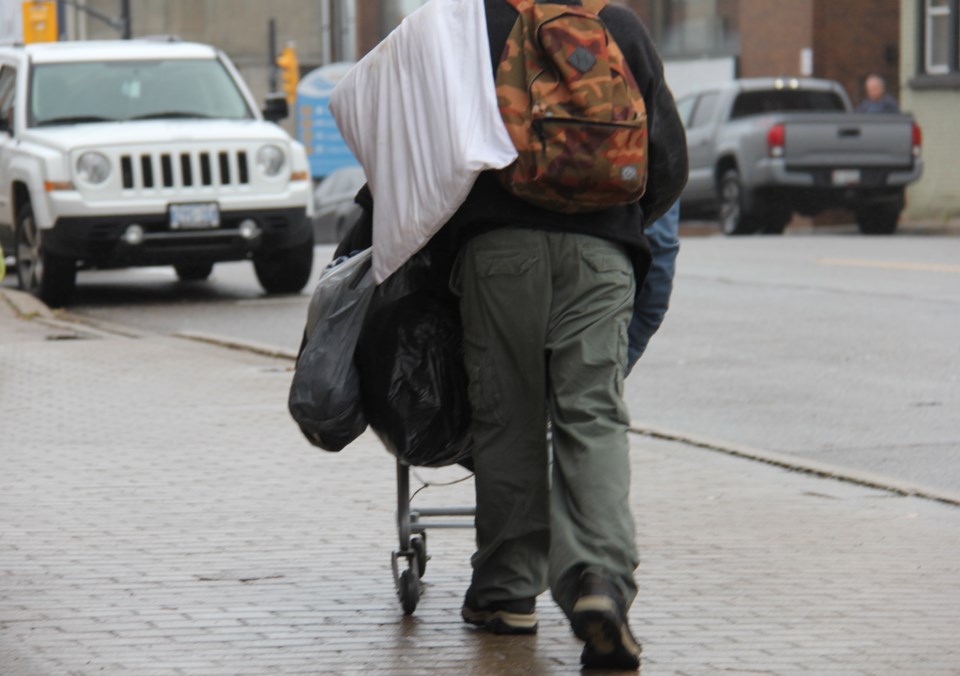A coalition, led by the North Bay Indigenous Friendship Centre (NBIFC), and including the Native People of Nipissing Housing Corporation and the North Bay Indigenous Hub, has released a paper titled Housing our Community: A Strategic Approach to Addressing Indigenous Homelessness in North Bay.
"Indigenous people are the major casualties in North Bay's current homelessness crisis, but city and provincial agencies are not involving Indigenous organizations in a meaningful way to address the issue," the position paper reads.
According to the NBIFC, in North Bay, Indigenous people account for about 14 per cent of the population yet make up 42 per cent of the city’s homeless.
"We believe that an evidence-based approach to the issue is required," writes the coalition. "Given that 42 per cent of homeless individuals in North Bay are Indigenous, funding allocations to address homelessness in North Bay should be re-disbursed to Indigenous organizations addressing homelessness in a manner that is proportional to the situation."
The NBIFC is actively seeking the necessary funding for building and staffing costs for its Suswin Village development, to be located across Cassells Street from the Friendship Centre and contain 30 transitional housing units. It is expected to be completed by fall 2022.
In 2017, Ontario announced over $500,000 in funding for the Suswin Village project and, in September 2019, added $2.5 million to that total. The latter contribution was designed to cover 17 of the 30 proposed transitional units. In early 2020, the NBIFC project was recognized for its innovative ideas and designated by the federal government to receive architectural and design guidance to help the project along.
The NBIFC "seeks meaningful collaboration with local municipal governments and organizations. In addition to proportional distribution, transparent and accountable allocation of funds earmarked to address Indigenous homelessness is needed to properly address the current and ongoing crisis."
"Indigenous service delivery agencies are not only perennially underfunded, but funding sources are often unsustainable, allocated as one-offs, or time-sensitive," the coalition's paper reads. "Our organizations are consistently left to deliver services with only a fraction of the funding that is allocated to mainstream services."
Outlining a strategic approach, the paper's four-part framework includes recommendations for increased funding, data sharing, collaboration, and culturally-appropriate services. By working in alignment with the City of North Bay and mainstream organizations to develop programs and services, NBIFC says it is "confident real progress can be made to end homelessness in the community."
The writers also find the "lack of support," from the District of Nipissing Social Services Administration Board for the Suswin housing project adds to the "disconnect" between agencies:
"As it stands in North Bay, the urban Indigenous community has been insufficiently engaged on community priorities, planning, and evaluating outcomes. Furthermore, Indigenous service delivery organizations are often tokenized, dismissed, and left out of decision-making."
The Suswin Village Project is the result of the Suswin Navigator Support Program. Launched in 2017 with the help of the Ontario Trillium Foundation, it was designed to help homeless Indigenous community members navigate supports and services, and find a place to call home. It provides basic needs such as food, clothing, and crisis support to education and training and, according to the program's findings, has a 63 per cent housing success rate in its first three years.
"Indigenous service delivery agencies are deserving of increased agency, autonomy, and respect. We know the unique needs of our community members and how to address them. Our goal is to also partner with mainstream services as effectively as possible to achieve better outcomes for the entire community, says NBIFC's Executive Director Kathy Fortin.
With the vast majority of funding going to mainstream services and supports, NBIFC and its coalition of urban Indigenous service providers say they remain "chronically under-resourced."
From the paper: "We recommend that new models of collaboration and accountability are established that reflect collaborative partnerships premised on the understanding that Indigenous service delivery agencies are deserving of increased agency, autonomy, and respect."
Building a relationship of understanding and respect between Indigenous, mainstream and municipal agencies is central to alleviating shared challenges such as homelessness, observes the NBIFC.
